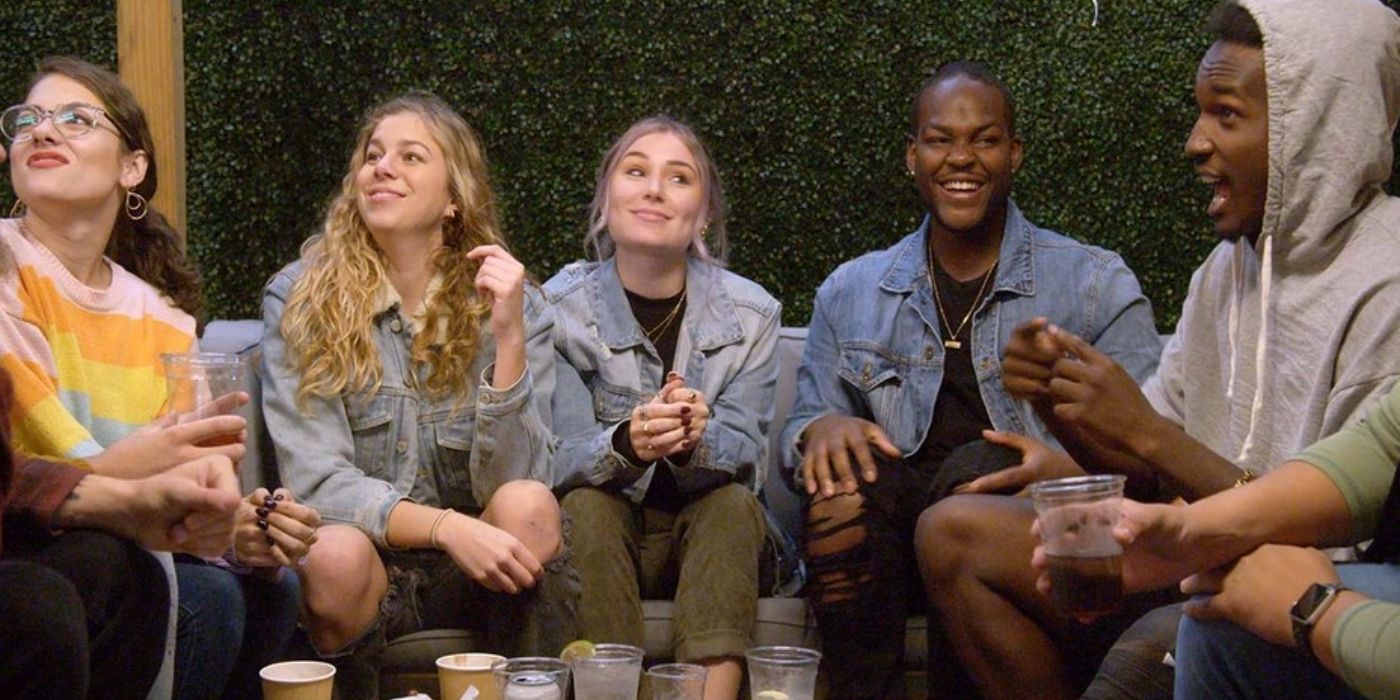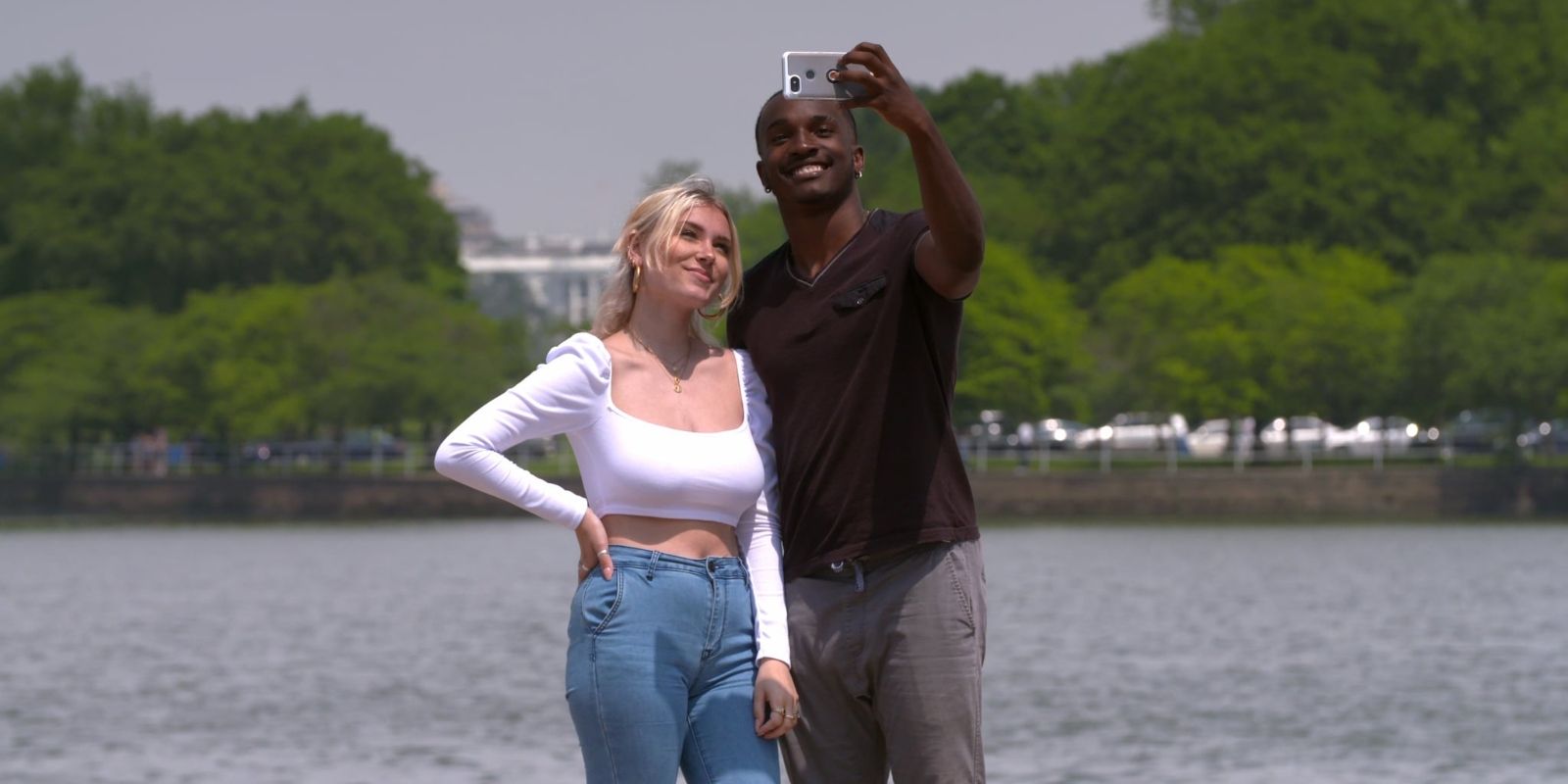Netflix's Deaf U has been widely praised for raising awareness about the deaf and hard of hearing community. The show is historic in that it is one of the only pieces of streaming content to dive deep into the lives of deaf and hard of hearing people. However, many members of the deaf community have some critiques of the show, such as the fact that it doesn't paint a full picture of the diverse deaf community. Many deaf viewers took to Twitter (or published articles) to show exactly why they are frustrated with the show.
Deaf U is a docuseries that follows the lives of six students at Gallaudet University. Gallaudet is America's famous university for the deaf and hard of hearing. It's located in Washington, D.C., and it's where much of the drama in Deaf U goes down. The stars of Deaf U are Cheyenna Clearbrook, Rodney Burford, Alexa Paulay-Simmons, Renate Rose, Daequan Taylor, and Dalton Taylor. The series follows their lives as junior and senior students, mostly focusing on their love lives, as well as issues with social cliques on campus. Some students are considered "elite" in the deaf community, while others aren't. For hearing people, it's a fascinating and educational look into the lives of people who are deaf or hard of hearing. However, some deaf and hard of hearing viewers hoped for more than what they say they got, which is a surface-level look at the lives of people who are deaf or have hearing problems.
Many deaf viewers wanted a deeper look into deaf culture. They felt Deaf U did not showcase the complexities of the deaf community. Said Elsa Sjunneson on Twitter: "I think ultimately my problem with Deaf U is that it’s like... barely scraping the surface on major issues that Deaf people actually experience. So I and other D/deaf viewers know there’s complexity but since it’s for a hearing audience...." Viewers who know what it's like to be deaf agreed that they would have liked it if the show catered to them more, rather than catering to hearing audiences. They also criticized the lack of focus on the Gallaudet community, such as its theater program and deaf studies classes. Twitter user @typicalsylv_14 said, "DeafU talks nothing but sex and elite.. there’s so much more to Gallaudet.. this is not it.. does not represent “Gallaudet” and its community.. disappointed in this..."
The second complaint about the reality TV show relates to its lack of diversity. The top tweet under the Deaf U hashtag is from Haben Girma, a deaf-blind disability rights lawyer, who pointed out that there were no deaf-blind people showcased. Or, for that matter, no deaf people with secondary disabilities. All of the cast are able-bodied and cis-gender, which, some viewers say doesn't show a full picture of the deaf community. This community includes all kinds of people, just like the hearing community.
With regard to diversity, many deaf viewers also took issue with the fact that there were no women of color in the cast. Meredith Peruzzi, director of the National Deaf Life Museum at Gallaudet, told the Huffington Post, "I think they absolutely should’ve cast a Black deaf woman, they are a highly marginalized group within our deaf community and should’ve had some involvement." Jade Bryan, a deaf filmmaker, pointed out that there were no deaf Black women working behind the camera either. Bryan, writing for PopSugar, also felt that the popular reality show could portray Black characters in a deeper, more dimensional way. The two characters of color, Rodney and Daequan, solely pursue white women, and Daequan even says, while standing at the Lincoln Memorial, that Martin Luther King's dream was that every Black boy could date a white girl. Bryan wrote, "I can almost guarantee that Black Deaf men would find it unsettling that the only two men from their community were portrayed in this way. "
The burden of representation is not a new concern. When a community only has one blockbuster show about them, it's bound to fail at displaying every member of that community's experience, and at showcasing every story. Still, deaf viewers are holding Deaf U accountable by voicing their concerns. Though no show can ever capture the full spectrum of human experience, if Deaf U gets picked up for more seasons (which a lot of deaf, hard of hearing, and hearing people are hoping for), Deaf U has a chance to create a broader picture of the deaf and hard of hearing experience.
Source: PopSugar, Huffington Post, @typicalsylv_14 via Twitter, @snarkbat via Twitter, @HabenGirma via Twitter


